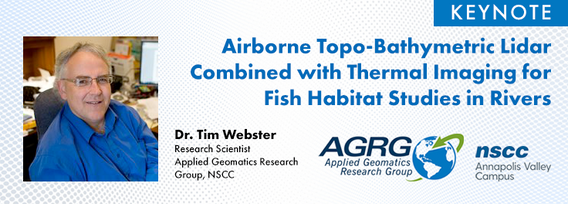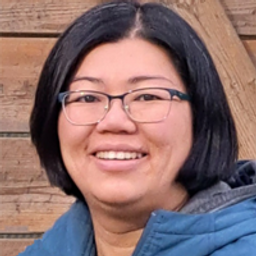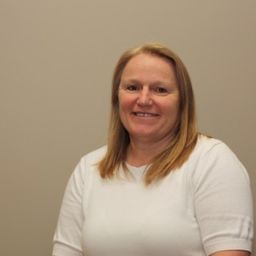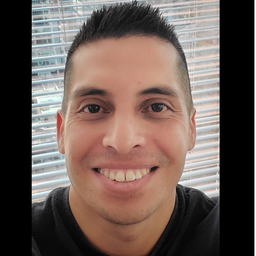KEYNOTE: Airborne Topo-Bathymetric Lidar Combined with Thermal Imaging for Fish Habitat Studies in Rivers

Mon statut pour la session
Quand:
9:00 AM, Mardi 26 Mar 2024 EDT
(30 minutes)
Pauses:
Commercial Break 09:30 AM à 09:45 AM (15 minutes)
Où:
Session virtuelle
Cette session est dans le passé.
L'espace virtuel est fermé.
Espace virtuel archivé
Airborne Topo-Bathymetric Lidar Combined with Thermal Imaging for Fish Habitat Studies in Rivers
Researchers at Nova Scotia Community College’s Applied Geomatics Research Group have been using the airborne Leica Chiroptera 4X topo-bathymetric lidar sensor for nearly a decade and have surveyed coastal, riverine and lake environments. They have concentrated on mapping submerged aquatic vegetation (SAV). Topo-bathy lidar data of rivers provides an opportunity for improved flood hazard hydrodynamic models as well as the analysis of fish habitat and fish passage. In addition to a seamless land-riverbed DEM and RGB, NIR orthophotos that are acquired from the CH4X system, the water depth can be calculated from the water surface and DEM. Recently these data have been combined with RPAS (drone) thermal imagery using the DJI M300 RTK system with the HT20 thermal and RGB camera. The thermal imagery is used to determine the location of “cold” springs which offer refuge for fish in the summer months. The topo-bathy lidar provides streambed bathymetry and depth for fish passage and the thermal data and drone imagery provides insights into fish habitat. The results of this analysis can provide river stewardship groups the insights they need for possible restoration projects and impediments to fish passage.
Researchers at Nova Scotia Community College’s Applied Geomatics Research Group have been using the airborne Leica Chiroptera 4X topo-bathymetric lidar sensor for nearly a decade and have surveyed coastal, riverine and lake environments. They have concentrated on mapping submerged aquatic vegetation (SAV). Topo-bathy lidar data of rivers provides an opportunity for improved flood hazard hydrodynamic models as well as the analysis of fish habitat and fish passage. In addition to a seamless land-riverbed DEM and RGB, NIR orthophotos that are acquired from the CH4X system, the water depth can be calculated from the water surface and DEM. Recently these data have been combined with RPAS (drone) thermal imagery using the DJI M300 RTK system with the HT20 thermal and RGB camera. The thermal imagery is used to determine the location of “cold” springs which offer refuge for fish in the summer months. The topo-bathy lidar provides streambed bathymetry and depth for fish passage and the thermal data and drone imagery provides insights into fish habitat. The results of this analysis can provide river stewardship groups the insights they need for possible restoration projects and impediments to fish passage.







